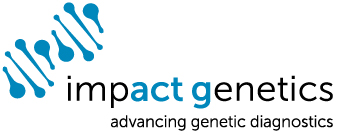
Questions Asked by Retinoblastoma Families
Some questions that we have encountered over years from families;
Q: My six-year-old child had unilateral retinoblastoma. We didn’t have genetic testing at the time her eye was enucleated, so there is no tumor tissue available. Now we would like to know if she carries a germline mutation. Our only other child is 4 years old and shows no sign of retinoblastoma. Is it better to wait to test until our daughter is closer to child-bearing age, in case advances in the field make testing more conclusive?
A: It is better to test your daughter sooner rather than later.
While it is certainly true that genetic testing is always improving, our lab banks DNA for every person whose mutation cannot be identified. As each new method is developed and implemented, we apply it to such DNA samples at no extra charge and report any new findings right away.
Testing sooner rather than later also improves the care for your four-year-old son. If he carries the same mutation as his sister, he is very likely to have tumors. If he does not carry the same mutation as his sister, he is only at population risk (1 in 15,000) to have retinoblastoma, so under current clinical standards, he does not need EUA’s.
Last, it is also important for your daughter’s care to know whether she carries a germline mutation. This knowledge is important to the ophthalmologist’s treatment plan, and if she has a germline mutation, your daughter is at higher risk of secondary tumors should she be exposed to radiation.
Q: What is the probability that your lab will find a mutation for a child diagnosed with unilateral, unifocal retinoblastoma if you are sent blood alone and not a sample of tumor tissue?
A: It is important to preserve retinoblastoma tumor tissue whenever possible by flash freezing, and not by formalin fixation and paraffin embedding. Access to tumor DNA allows much more powerful analysis, and we seem to learn something new about retinoblastoma from almost every tumor studied.
If no tumor is available, then there are three outcomes possible when we study DNA from blood alone for a unilaterally affected individual with no family history of retinoblastoma:
(14% chance) we identify a germline mutation in DNA extracted from the person’s blood.
(85% chance) we find no mutation because there is no germline mutation in the person’s DNA. His or her retinoblastoma is somatic.
(1% chance) our methods cannot detect the germline mutation that leads to the person’s retinoblastoma.
Even though this analysis is not as powerful as it would be with access to tumor tissue, it will either identify a mutation or reduce the risk of a germline mutation from 15% to 1%.
Resources for Families
Explanations of Retinoblastoma
- A Parent’s Guide to Understanding Retinoblastoma – A guide for parents from retinoblastoma.com
- Explanation of retinoblastoma from eyecancer.com
Sites with Additional Information about Retinoblastoma
- World Eye Cancer Hope: Their vision and mission is to build best care for all children, survivors and families affected by retinoblastoma.
- Oncolink General Retinoblastoma Information
- Retinoblastoma Facts The Childhood Eye Cancer Trust (CHECT)
- Retinoblastoma Children’s Cancer Web
- Retinoblastoma HealthCentral General Health Encyclopedia
- Prosthetic Eye Institute
Canadian organizations that support retinoblastoma families
Canadian Retinoblastoma Society
c/o 59 Bannockburn Avenue
Toronto, ON M5M 2M9
Phone: (306) 642-4993; Fax: (306) 642-3809
Email: info@rbsociety.ca
The Canadian Retinoblastoma Research Advisory Board (CRRAB)
Includes people affected by retinoblastoma (e.g., survivors, the immediate family of someone diagnosed with retinoblastoma etc.), clinicians, allied healthcare providers, researchers, patient engagement experts and policymakers.
The CRRAB allows patients to interact with researchers to promote and share research that is created and led by people affected by retinoblastoma. It aims to engage a diverse group of patients and researchers.
Please visit our CRRAB Patient Engagement Strategy
One Canadian family‘s site, with resources for all retinoblastoma families
Email: donnc@retinoblastoma.ca
American organizations that support retinoblastoma families
American Childhood Cancer Organization
National Office
P.O. Box 498
Kensington MD 20895
Phone: 855-858-2226; 301-962-3520
Email: staff@acco.org
Retinoblastoma International
4650 Sunset Boulevard, Mailstop 88
Los Angeles, CA 90027
Phone: (323) 669-2299
Contact: Christina Saffran Ashford, President
Institute for Families
P.O.Box 54700, Mailstop 111
Los Angeles, CA 90054-0700
Phone: (323) 669-4649
Contact: Nancy Chernus-Mansfield
National Federation of the Blind
1800 Johnson Street
Baltimore, MD 21230
Phone: 410-659-9314
Fax: 410-685-5653
Email: nfb
New England Retinoblastoma Parents Support Group
Box 317
Watertown, MA 02471
Phone: 1-800-562-6265 Fax: 617-972-7444
Email: click here
National Retinoblastoma Research and Support Foundation (NRRSF)
900 N.W. 17th Street, Room 257 PO Box 016880
Miami, FL 33101-6880
Phone: (800) 226-2734
Email: Tim Murray
New England Retinoblastoma Support Group (NERSG)
10 Allen Road Bow,
New Hampshire 03304
Phone: (800) 562-6265
Contact: Susan E. LaVenture

